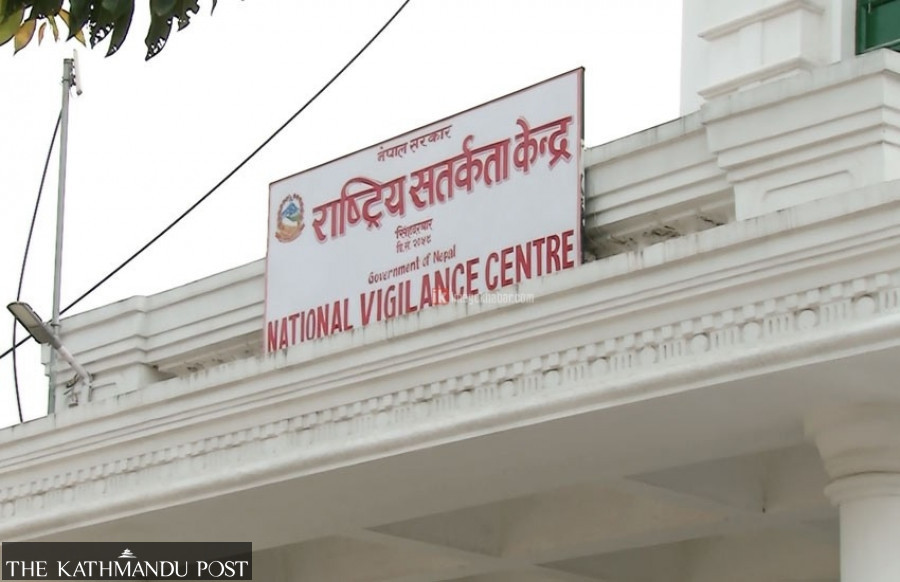National
Vigilance centre gets more responsibility but not enough funds and personnel
The centre has been asked to conduct technical audits of all infrastructure projects worth over Rs100 million.
Prithvi Man Shrestha
As per a new rule, all development projects whose estimated cost is over Rs100 million should be subjected to quality tests of their structures by the National Vigilance Centre. But it will not be easy for the Centre to conduct the tests on all such projects this fiscal year with the government allocating inadequate resources to the Centre.
Issuing the Budget Implementation Guidelines for the current fiscal year 2021-22, the Finance Ministry said that such tests should be conducted through the Centre, an anti-graft body under the Prime Minister’s Office.
The Centre conducts technical audits of infrastructure projects to see whether the construction works are in line with the original designs and suggests needful corrections.
The Centre has set up its own lab to test the quality of the construction materials used such as cement, sand, steel, stone, bitumen, concrete, and blacktop in the case of roads, to determine whether they meet the technical standards.
“The work is challenging but we can conduct quality tests of construction projects if we are provided adequate resources,” said Gyanraj Subedi, spokesperson at the Centre. “We need to train more engineers to increase our capacity to conduct quality tests.”
The government has not increased the budget for the Centre substantially for the current fiscal year although it has added responsibilities. According to the Finance Ministry, the Centre has been allocated Rs115.3 million for the current fiscal year, up from the revised estimated expenditure of Rs99.2 million in the last fiscal year 2020-21.
The Centre was established under the Corruption Prevention Act-2002 and one of its tasks is to conduct technical audits of public construction through independent technicians and experts.
The Centre has shortlisted around 400 engineers for conducting technical audits.
According to Subedi, the Covid-19 pandemic affected the Centre’s work last fiscal year so it could conduct technical audits of just 24 projects. But, there are hundreds of development projects with an estimated cost of over Rs100 million and it may not be possible for the Centre to conduct technical audits of all these projects with the current funds and manpower.
The Department of Roads alone is constructing around 1,500 bridges and over 1,500 road projects are in different phases of construction. According to the department, around 1,100 bridges are in the construction phase.
“About a quarter of the under-construction projects include bridges with an estimated cost of Rs100 million each,” said Shiva Prasad Nepal, spokesperson at the department.
According to Nepal, the Finance Ministry’s plan is not clear whether the Rs 100 million is the entire project cost or the value of the contract. The cost of most road projects is over Rs100 million and technical tests of all of them should be done if the entire project is taken as one unit. Other development-focused ministries including energy, urban development and water supply also have several projects whose estimated costs are above Rs100 million.
The Centre conducts a technical audit of whether the contractor has maintained the required standard or quality in the construction projects. Over two dozen bridges and roads at 119 locations were damaged by the recent floods and landslides, according to the roads department. ‘Most of them were damaged due to floods and landslides but we are not sure whether technical deficiencies were also responsible,” said Nepal. A technical audit conducted by the Centre can be helpful to determine if the contractors had compromised the quality of construction.
Since the Centre was able to conduct technical audits of just two dozen projects in the last fiscal year, it will require more resources and manpower if it is to audit more projects. “We have 400 registered engineers and can deploy one engineer per project, but we will need more funds for their deployment,” said Subedi.




 16.12°C Kathmandu
16.12°C Kathmandu














